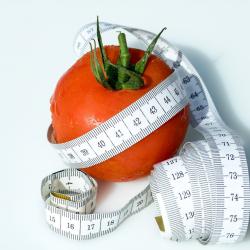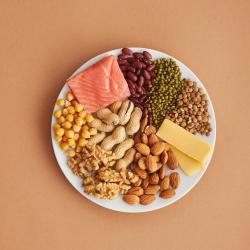The Importance of Portion Control in Healthy Cooking
In the quest for a healthier lifestyle, people often focus on the quality and type of food they consume. While fresh vegetables, lean proteins, and whole grains certainly lay a strong foundation for a nutritious diet, another crucial aspect of healthy eating frequently goes overlooked: portion control. Understanding and implementing portion control can significantly impact one’s health, aiding in weight management and preventing a host of lifestyle-related diseases. This article delves into the importance of portion control in healthy cooking and provides practical tips for integrating it into everyday life.
Why Portion Control Matters
-
Weight Management:
- Overeating, even healthy foods, can lead to weight gain. Consuming more calories than your body needs can result in the storage of excess energy as fat. By controlling portion sizes, you can ensure that your calorie intake aligns with your body's energy needs, which is essential for maintaining or achieving a healthy weight.
-
Balanced Nutrition:
- Portion control encourages a balanced consumption of different food groups. By managing portions, you’re more likely to include a variety of nutrients on your plate. It allows you to enjoy all types of foods within a balanced diet, ensuring you get essential vitamins and minerals without going overboard on any one category.
-
Digestive Health:
- Eating large meals can overwhelm your digestive system, leading to discomfort, indigestion, or bloating. Smaller, more manageable portions help your body break down food more efficiently and absorb nutrients effectively.
-
Prevention of Chronic Diseases:
- Overconsumption of food, particularly portions high in sugars, fats, and sodium, is linked to diseases such as diabetes, hypertension, and cardiovascular issues. Educating yourself about appropriate portion sizes can help mitigate these risks.
Tips for Practicing Portion Control
-
Use Smaller Plates:
- The size of your plate can influence how much you eat. Smaller plates can make portions appear more substantial and can help prevent overeating.
-
Listen to Your Body:
- Learn to recognize hunger and fullness cues. Eating slowly can give your brain time to register fullness, preventing you from consuming more than necessary.
-
Measure Portions:
- Familiarize yourself with standard serving sizes by using measuring cups or a food scale. With time, you’ll be able to estimate portions more accurately by sight.
-
Plan and Pre-Portion Meals:
- When cooking at home, portion out servings in advance, instead of bringing the entire pot to the table. This practice can remove the temptation to go back for seconds.
-
Mindful Eating:
- Pay attention to what you’re eating without distractions such as TV or smartphones. Mindfulness can enhance your enjoyment of food and your awareness of portion sizes.
-
Restaurant Strategy:
- Dining out often means encountering large portions. Consider options like sharing a dish, ordering a half portion, or immediately packing half of your meal to go.
Conclusion
Incorporating portion control into your cooking practices doesn’t just contribute to maintaining a healthy weight; it also plays a significant role in overall health and well-being. By being mindful of how much food you’re consuming, you empower yourself to make better dietary choices leading to balanced nutrition, better digestion, and a reduced risk of chronic illnesses. Remember that moderation is key, and a balanced approach to eating can help pave the way to a healthier lifestyle. Prioritize understanding portion sizes and refining your cooking practices to embrace this often underrated component of healthy eating.






















